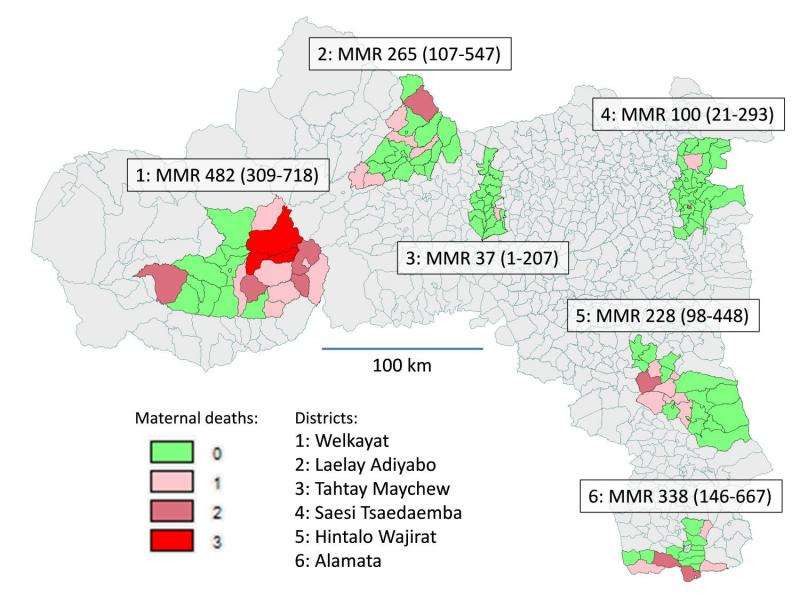Innovative maternal health interventions reduce mortality in Ethiopia

Ethiopian maternal health researcher Hagos Godefay at Umeå University in Sweden has created a locally feasible method to estimate maternal mortality rates with a bottom-up measurement approach. Providing insights into the effectiveness of local interventions to reduce maternal mortality, the approach will be important for health sector planning and decision-making on local-, regional- and state levels.
Hagos Godefay at the Department of Public Health and Clinical Medicine, Epidemiology and Global Health Unit has researched current efforts to reduce maternal mortality in the Tigray Region of northern Ethiopia. He has set out to quantify overall mortality levels, identify specific causes and evaluate local interventions. By using methods that can also be scaled at national level, Hagos Godefay's results provide a strong empirical basis for decision-making by the Tigray Regional Health Bureau.
"We see encouraging results of improved reproductive health and reduced pregnancy-related deaths in the Tigray region. A key reason for this has been the creation of small local women's groups of volunteers who act as ambassadors for the benefits of utilizing the existing health services," says Hagos Godefay.
Women recruited to join the Health Development Army
In the Tigray region, the government have created the Health Development Army, an initiative that seeks to integrate and strengthen the linkages between the community, politicians and the health sector. The overall goals are improved sustainability of health programs and community empowerment. To achieve these goals, the initiative brings together community action, as represented by Women's Development Groups, and the commitment of the regional political leadership and the health sector itself, represented by the health workforce.
A key aspect of the Health Development Army is the focus on community and social mobilization in Women's Development Groups. The initiative encourages women in neighboring households to volunteer and organize in so called "1-to-5 networks", which then form larger networks of 25-30 members. The groups set out to create demand for and increase utilization of existing maternal health services. This is in part accomplished by tackling behavioral barriers and potentially unhealthy traditional practices through community dialogue. The groups also encourage facility-based delivery by preparing cultural porridges and Ethiopian coffee for postnatal mothers at health facilities.
"The goal is to reinforce positive behaviors and locally initiated good practices by celebrating women's achievements. Creating a conducive environment, where women living in the rural areas can meet and discuss together based on their own agenda, can make a big difference in reducing maternal mortality. This has been one of the more challenging goals, but achieving it demonstrates that women can work together to save the lives of other women," says Hagos Godefay.
Evaluating a free ambulance services program
In research findings published earlier this year in the Journal of Global Health, Hagos Godefay and his colleagues showed that transport and communication innovations in Tigray and other rural areas of Ethiopia correlated with appreciably reduced maternal mortality. The study showed that a national program providing free-of-charge ambulances, which can be ordered on a 24/7 basis via mobile phones, coincided with a reduction of maternal mortality rates by about 50 percent.
"Despite noticeable achievements in the Tigray region, major challenges remain in many settings in terms of both measuring and reducing maternal mortality effectively," concludes Hagos Godefay.
Hagos Godefay is a global health epidemologist who has been studying the epidemiology of maternal health in Tigray region of northern Ethiopia for several years. Hagos Godefay completed his Master's Degree in Public Health at Gondar University in Ethiopia, and his PhD Degree in Epidemology and Public Health at Umeå University in Sweden. His research interest focuses on the condition of maternal health in rural Ethiopia. He currently heads the Tigray Regional Health Bureau, where he is committed to using his findings to implement several immediate actions and to influence policy making to further reduce pregnancy-related deaths on a regional and national level.













